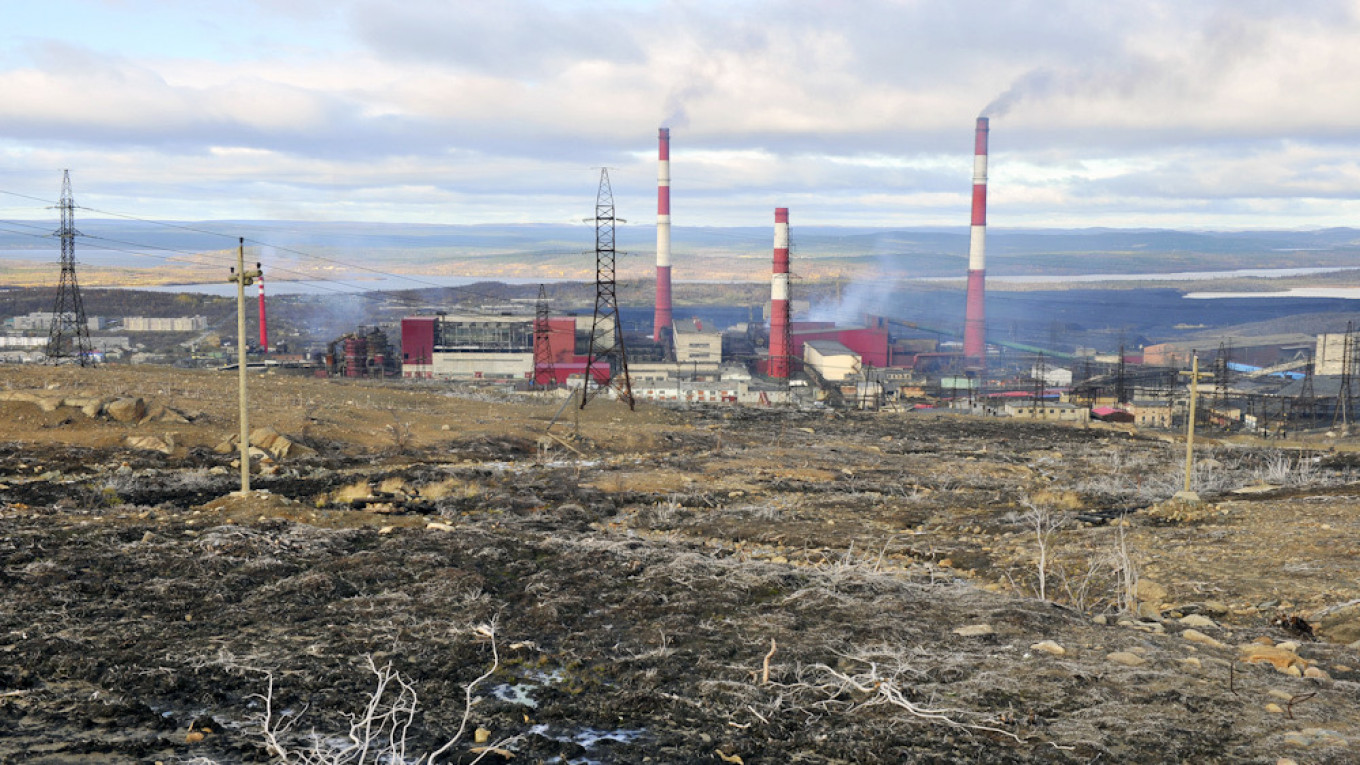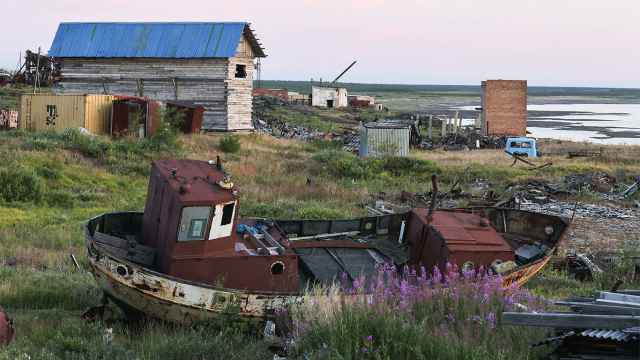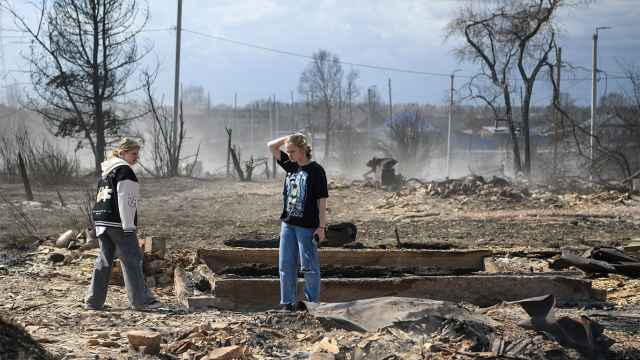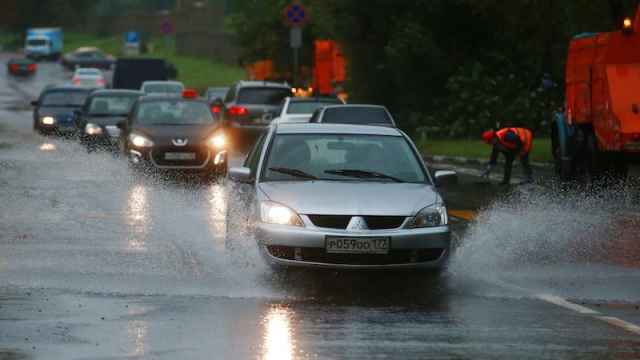Tens of thousands of tons of sulfur dioxide and other hazardous gases have annually been emitted from the chimneys of Nornickel’s factory in the town named after the metal produced there.
Damage to human health, the environment and cross-border relations with Norway have made the town of Nikel in the Murmansk region infamous much further than its acid rain has damaged the fragile taiga forest on the Kola Peninsula and northern Scandinavia.
Now, it is all set to come to an end.
By Dec. 25, the last workers involved in smelting production will be transferred to new jobs. After that, according to the company’s human resources and social policy director Anna Krygina, the remaining workers will work in customer service and taking apart equipment. This work is scheduled to continue to the end of 2021.
In an interview with the Nornickel-sponsored TV21 television channel, Krygina said many of the workers will retire, while many others will fill vacancies at Nornickel’s subsidiary Kola Mining and Metallurgical Combine. The company operates mines in Zapolyarny while the production now shutting down in Nikel will partly be transferred to the larger factory complex in Monchegorsk.
“Today we are talking about plans for the workers. Now, the documentation and implementation of all these plans are starting. So we still have two months of hard work,” Krygina said in the interview.
Oligarch and Nornickel CEO Vladimir Potanin first announced the closure of the plant last fall, a move affecting about 800 workers. With just six weeks before the shutdown, only two workers have not chosen any of the options offered by the company.
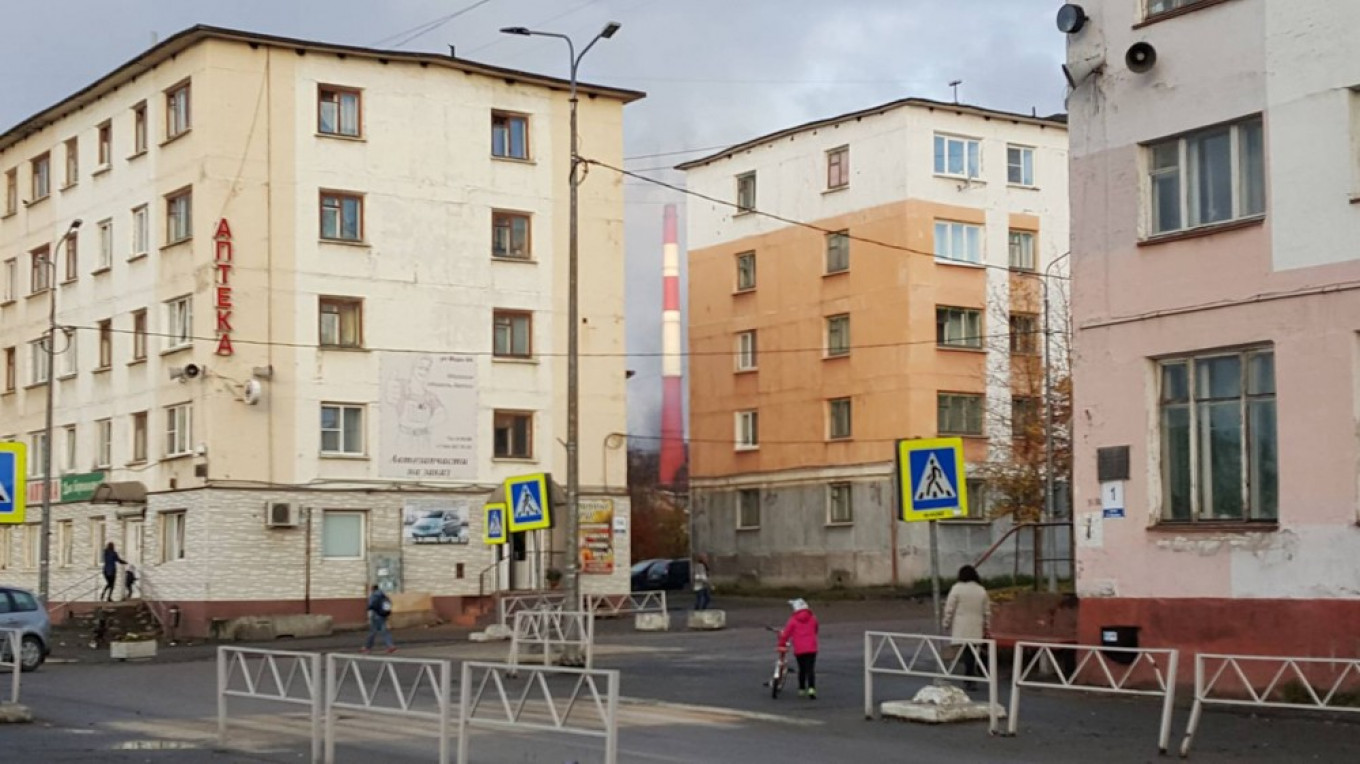
Nikel is a typical ‘monogorod,’ a town whose economy centers around a single major company or industry. Many locals fear their town is doomed, but officials have made promises to compensate the job losses. Transitions to other industries, like tourism, have been named as a priority by both Nornickel and regional authorities.
Successful or not, many of the current employees at the plant will move elsewhere. The Barents Observer has previously reported on unsold apartments in Nikel on the market for 100,000 rubles ($1,300), or about as much as a new iPhone.
The smoke will be gone by Christmas Day, but the factory will still dominate the town's skyline.
Production machinery and equipment are to be transferred to other divisions of Nornickel in the Murmansk region and on the Taimyr Peninsula in Siberia.
The buildings will be demolished by 2025 and will be followed by a two-year land reclamation period. By 2027, the smelter that was erected a few years after World War II will be history.
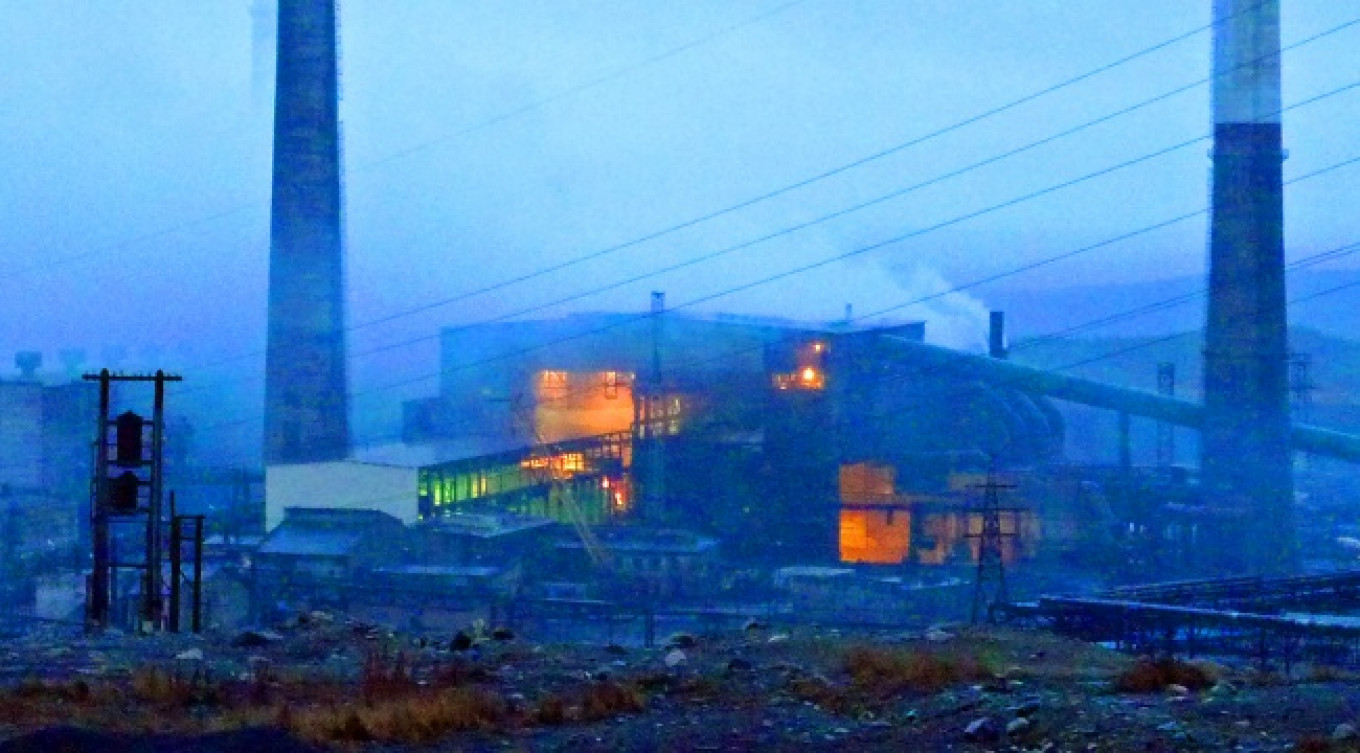
In the late 1980s and early 1990s, the smelter received ore from Norilsk which contained much more sulfur than from the local mines in Nikel and Zapolyarny. At their peak, annual emissions reached up to 400,000 tons of sulfur dioxide (SO2). In the last two decades, SO2 emissions have been reduced to less than 90,000 tons per year. The smoke brings additional tons of heavy metals into the air which also spread across the border to Norway, where the maximum allowed SO2 limits for air quality have notoriously been violated.
A Message from The Moscow Times:
Dear readers,
We are facing unprecedented challenges. Russia's Prosecutor General's Office has designated The Moscow Times as an "undesirable" organization, criminalizing our work and putting our staff at risk of prosecution. This follows our earlier unjust labeling as a "foreign agent."
These actions are direct attempts to silence independent journalism in Russia. The authorities claim our work "discredits the decisions of the Russian leadership." We see things differently: we strive to provide accurate, unbiased reporting on Russia.
We, the journalists of The Moscow Times, refuse to be silenced. But to continue our work, we need your help.
Your support, no matter how small, makes a world of difference. If you can, please support us monthly starting from just $2. It's quick to set up, and every contribution makes a significant impact.
By supporting The Moscow Times, you're defending open, independent journalism in the face of repression. Thank you for standing with us.
Remind me later.


